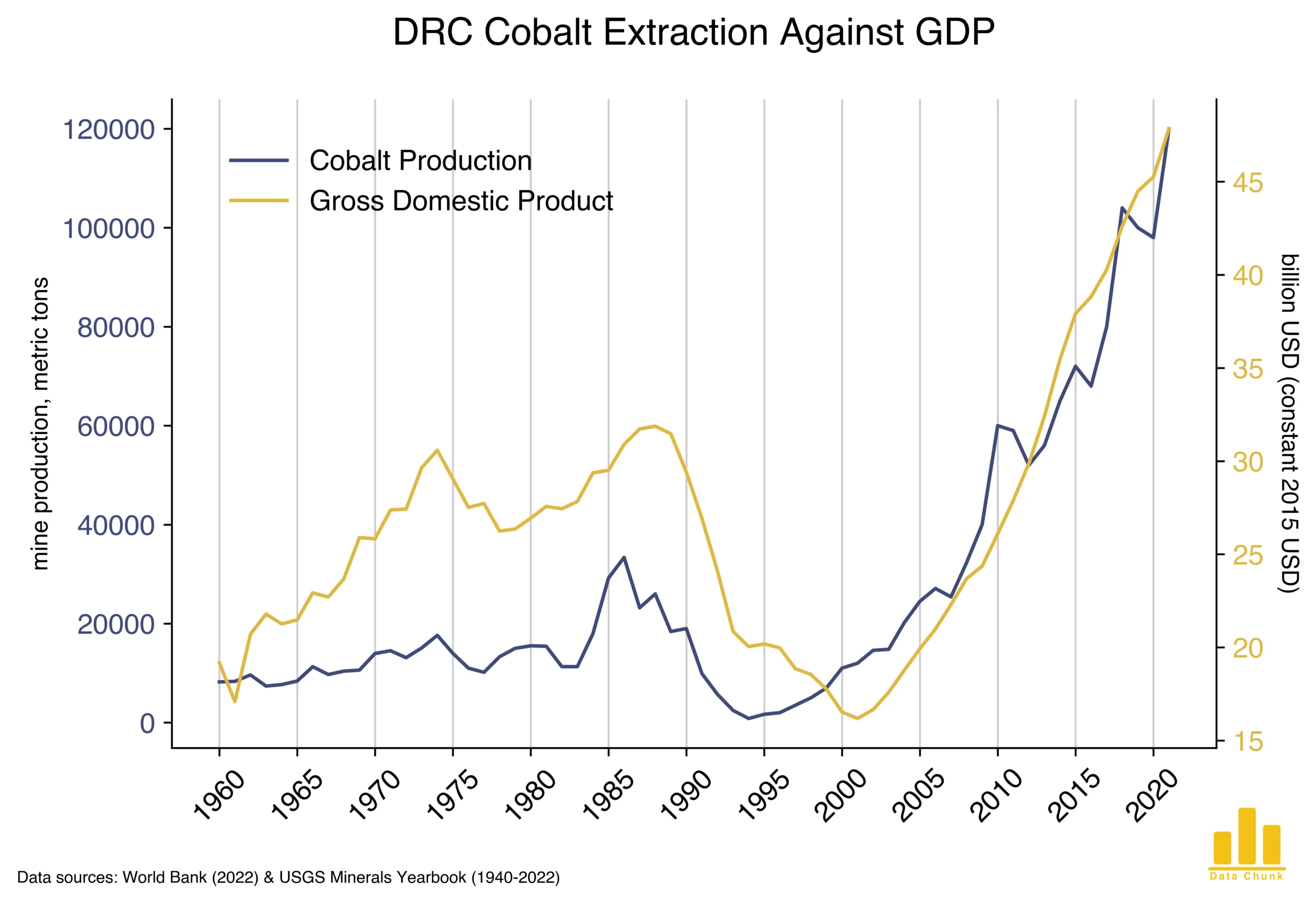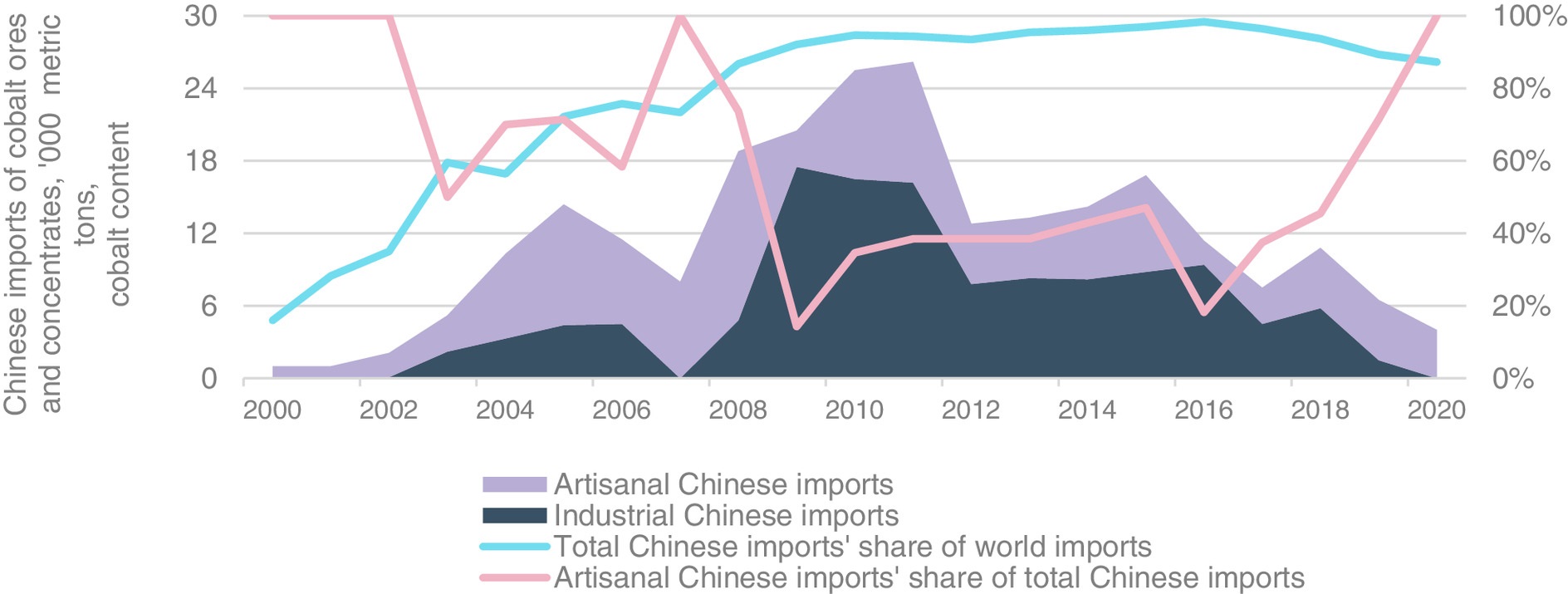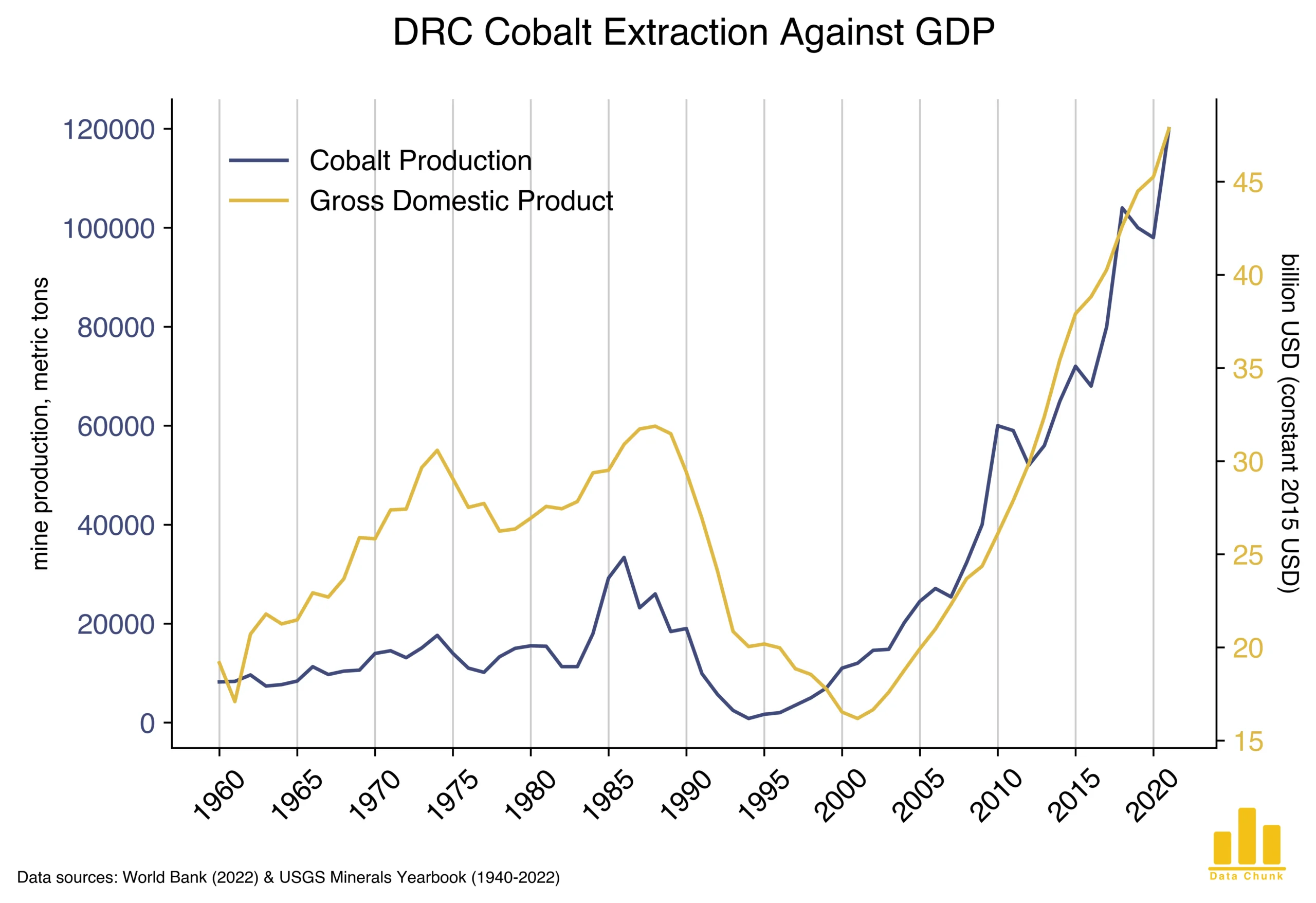- According to authorities, tapping into DRC’s mineral wealth will yield significant returns for investors and contribute to the Congolese population’s socio-economic advancement.
- This strategic approach resonates with President Félix Antoine Tshisekedi’s agenda to foster job creation and entrepreneurial opportunities.
- Canadian mining giant Ivanhoe Mines is cited as an example of a “modern investor” doing business in DRC.
The Democratic Republic of Congo (DRC) is embarking on a bold mission to harness its untapped mineral wealth, valued at $24 trillion, by courting “modern investors” to drive its mining-powered development plan.
At the forefront of this initiative is Mr. Miguel Kashal Katemb, the Director General of the Regulatory Authority for Subcontracting in the Private Sector (ARSP), who articulated the nation’s aspirations at the 30th annual Mining Indaba in Cape Town, South Africa.
In his address to the audience of investors, Mr Katemb underscored the DRC’s openness to all investors while emphasising the preference for partners who align with the country’s vision of sustainable economic growth.
He articulated a vision where investments in the DRC yield significant returns for investors and contribute to the Congolese populace’s socio-economic advancement.
ARSP is a vital link between mining investors and local Congolese companies, facilitating market access and resource utilisation while ensuring equitable participation in the mining value chain.
“Modern investor” to drive job creation and entrepreneurship
This strategic approach resonates with President Félix Antoine Tshisekedi‘s agenda to foster job creation and entrepreneurial opportunities, thereby uplifting communities nationwide.
Recent regulatory reforms introduced by the DRC mandate that 51 per cent of secondary activities, such as sub-contracts, within the mining industry be held by Congolese entities.
This move aims to democratise the benefits of the country’s abundant mineral resources, ensuring that the wealth generated from mining activities trickles down to benefit all strata of society.
Speaking at the Mining Indaba forum, Mr Katemb reiterated the DRC’s quest for “modern investors” who can contribute to building a prosperous future for the Congolese people.
He underscored the need for partners committed to ethical business practices and sustainable development, echoing sentiments of shared prosperity.
Highlighting Canadian mining giant Ivanhoe Mines as an example of a “modern investor,” Mr. Katemb exemplified the type of collaboration the DRC seeks to foster.
He expressed confidence that with the right partners, there will be “cake for everyone” in the equitable distribution of the country’s mining riches.
The DRC’s push to attract modern investors is underpinned by a strategic vision that prioritises inclusive growth and responsible resource exploitation.
By engaging in mutually beneficial partnerships, the nation aims to unlock the full potential of its mineral wealth while safeguarding the interests of its citizens.
Investors eyeing opportunities in the DRC’s mining sector are drawn not only by the prospect of substantial returns but also by the chance to be catalysts for positive change.
DRC’s quest to attract modern investors
With the support of visionary partners, the DRC endeavours to chart a path toward sustainable development that leaves a lasting impact on both its economy and society.
As the global demand for minerals continues to surge, the DRC stands poised to emerge as a pivotal player in the international mining landscape.
By leveraging its vast resources and fostering collaborative partnerships, the nation seeks to carve out a prosperous future that benefits both present and future generations.
The DRC’s quest to attract modern investors represents a pivotal moment in its journey towards unlocking its mineral potential.
Through strategic alliances and forward-thinking policies, the nation is poised to realise its vision of shared prosperity and sustainable development in the realm of mining.

Read also: Lobito Corridor: a US-backed mining catalyst in DRC and Zambia
DRC’s mineral wealth
DRC boasts an abundance of valuable resources that have the potential to shape not only its destiny but also that of the global economy. From the dense forests of its interior to the sprawling savannas of its border regions, the DRC’s geological landscape is endowed with an array of minerals coveted by industries worldwide.
At the heart of the DRC’s mineral wealth lies cobalt, a vital component in the production of lithium-ion batteries essential for electric vehicles and renewable energy storage.
With an estimated 60 per cent of the world’s cobalt reserves, the DRC holds a strategic position in the transition to a greener, more sustainable future.
However, despite its critical importance, the cobalt industry in the DRC has faced challenges related to artisanal mining practices and concerns over labour conditions, prompting calls for greater accountability and sustainability.
In addition to cobalt, the DRC is a leading producer of copper. The Katanga region, in particular, is renowned for its vast copper deposits, attracting multinational mining companies eager to capitalise on this valuable resource.
Copper, with its wide-ranging applications in construction, electronics, and telecommunications, serves as a cornerstone of the DRC’s economy, driving industrial growth and export revenues.
Furthermore, the DRC boasts substantial reserves of tantalum, tin, tungsten, and gold, collectively known as conflict minerals, due to their association with armed conflict and human rights abuses in the eastern provinces.
Efforts to address the illicit trade of conflict minerals have led to the implementation of traceability and due diligence mechanisms aimed at ensuring that mineral supply chains are free from exploitation and contribute to peace-building initiatives in the region.
Diamonds also feature prominently in the DRC’s mineral portfolio, with the country being home to some of the world’s largest diamond reserves.
However, the diamond industry in the DRC has faced challenges related to smuggling, illegal mining, and the financing of armed groups, highlighting the need for greater transparency and regulation within the sector.
Read also: Under Tshisekedi, DRC evolves into a new hub for investments in Africa.
Colonial exploitation and decades of conflict
Despite its immense mineral wealth, the DRC has struggled to fully harness the economic potential of its resources due to a combination of factors, including political instability, corruption, inadequate infrastructure, and regulatory uncertainties.
Moreover, the legacy of colonial exploitation and decades of conflict have left a lasting imprint on the country’s mining sector, hindering efforts to promote sustainable development and equitable wealth distribution.
The government has introduced reforms aimed at improving governance, enhancing transparency, and attracting responsible investment in the mining sector. Initiatives such as the Extractive Industries Transparency Initiative (EITI) and the Kimberly Process Certification Scheme have helped to foster greater accountability and oversight within the industry, laying the groundwork for sustainable development and poverty alleviation.
Moreover, partnerships between the DRC and international stakeholders, including multilateral organisations, civil society groups, and private sector actors, have contributed to efforts to promote responsible mining practices and address the root causes of conflict and instability in mineral-rich regions.

National Agency for the Promotion of Investments (ANAPI)
Through the National Agency for the Promotion of Investments (ANAPI), DRC is aggressively wooing investors into mining as well as into harnessing the country’s vast arable lands, roughly 80 million hectares across the provinces, for agricultural investments.
Under Managing Director Anthony Kamole, ANAPI is working for the improvement of the business environment through advocacy and advice to President Tshisekedi’s government.
The agency provides various services to investors, enabling their establishment in the country and positioning to guarantee competitiveness. What’s more, ANAPI grants customs and tax incentives to investors whose projects are eligible for such benefits under the Investment Code.


